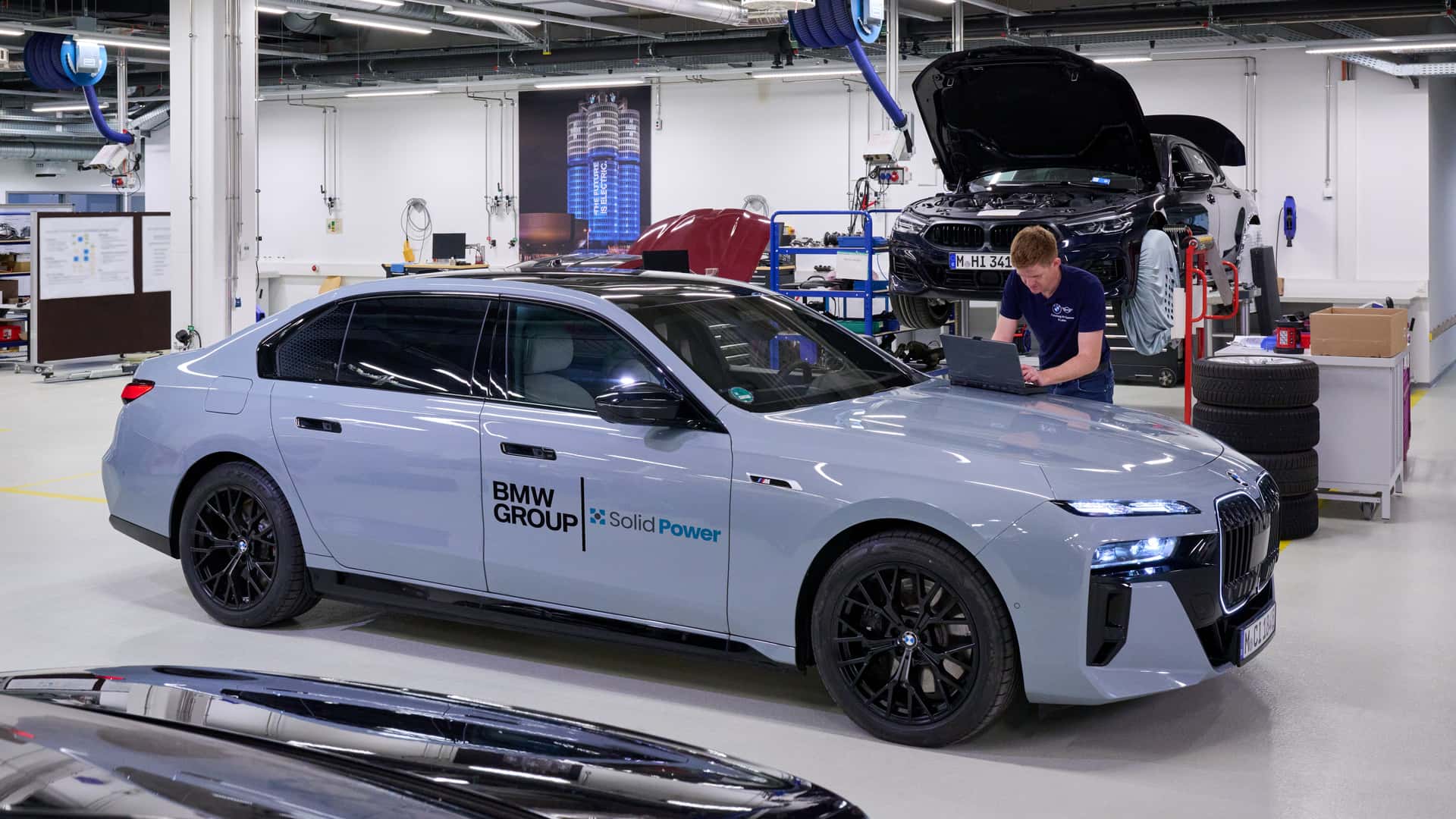
- BMW has teamed up with Korean battery giant Samsung SDI to develop solid-state batteries.
- The automaker also has a long-standing partnership with American battery start-up Solid Power.
- A prototype BMW i7 with all-solid-state batteries began testing in Germany this year.
The pool of automakers and battery companies selling us the hopes and dreams of solid-state batteries has grown so large that the question is no longer if these advanced packs will ever arrive, but when.
After beginning tests on a prototype BMW i7 this May using Colorado-based start-up Solid Power’s all-solid-state batteries (ASSBs), the German automaker has now roped in Korean battery giant Samsung SDI to help it build its solid-state cells.
Under the new partnership, Samsung SDI will assist BMW and Solid Power in developing and validating the cells. Solid Power will supply its sulfide-based solid electrolyte, the core material, while Samsung SDI will integrate it into the separator and actually build the battery cells.

“Our solid electrolyte technology is designed for stability and conductivity, and by working closely with global leaders in automotive and battery innovation, we strive to bring ASSB technology closer to widespread adoption,” said John Van Scoter, President and CEO of Solid Power.
Solid-state batteries use a solid electrolyte instead of the liquid one found in conventional lithium-ion cells. It can be made of various materials, including polymers, sulfides, oxides, or ceramics. The potential benefits include more energy density, quicker charging times, longer lifespan and a better thermal profile leading to lower fire risks.
Samsung SDI is among the world’s top ten battery manufacturers, according to Korean market research firm SNE Research. In the first nine months of this year, it ranked eighth globally in battery usage.
That manufacturing expertise could prove valuable for BMW and Solid Power, since the cells can be made using existing lithium-ion battery manufacturing techniques, according to the start-up. However, the partnership currently focuses only on batteries for next-generation “evaluation vehicles,” BMW said. It's unclear if the collaboration would convert into a broader manufacturing contract.
That said, Solid Power’s cells have different energy densities. Its silicon anode battery with a sulfide electrolyte and nickel-manganese-cobalt cathode is rated for 390 watt hours per kilogram, higher than the industry average of between 200-300 Wh/kg for traditional lithium-ion batteries. Throw in a lithium metal anode in there instead of the silicon anode and the energy density jumps to 440 Wh/kg, according to the company.

A more experimental version uses what Solid Power calls a “conversion-type” cathode, pushing energy density to a theoretical 560 Wh/kg. However, these higher-density cells remain in the early stages of development, according to a previous SEC filing.
For now, battery experts agree that scalability and manufacturing remain the biggest obstacles to bringing solid-state technology to market. Still, BMW believes it’s only a matter of time before it’s ready for commercialization.
Other automakers are also forging their own paths. Mercedes-Benz and Stellantis are developing the tech with Factorial Energy, Volkswagen with QuantumScape and Chinese heavyweights BYD, CATL and WeLion New Energy are also developing this tech.
Have a tip? Contact the author: suvrat.kothari@insideevs.com







